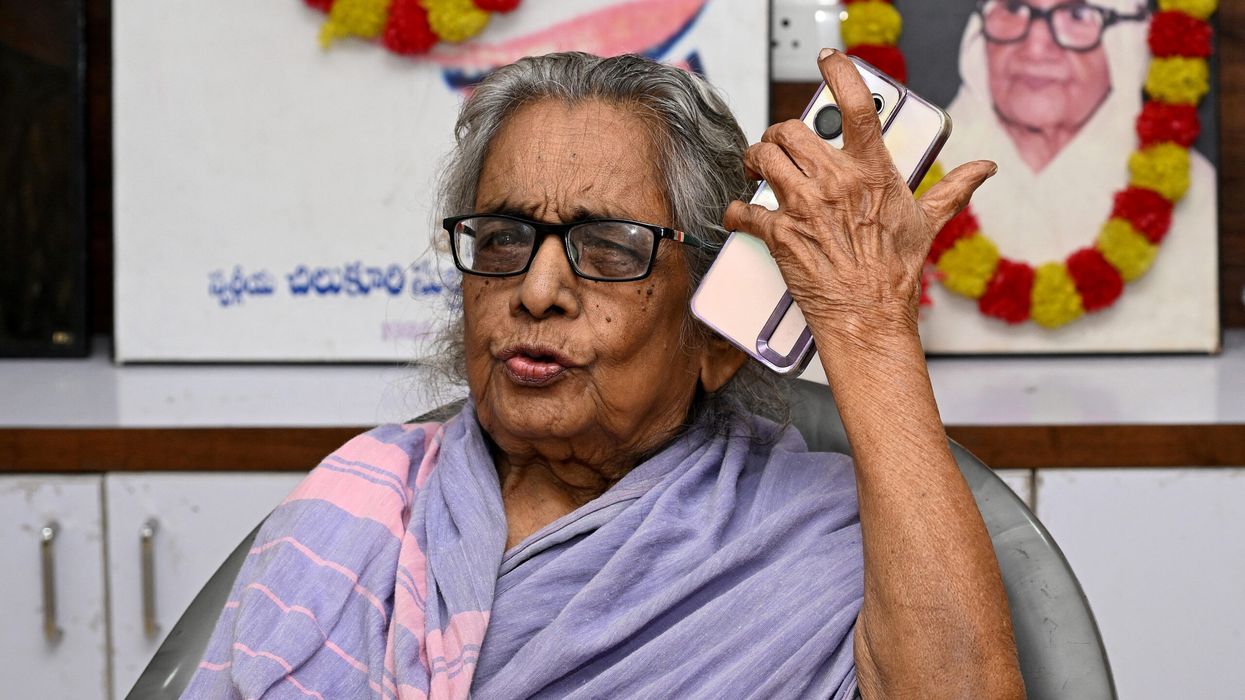Usha Chilukuri Vance, the wife of Donald Trump's vice presidential running mate in the US election, has a great-aunt in southern India, aged 96, who is celebrated in local media as the country's oldest active professor.
Academic achievement is prominent in the family of US-born Vance, notably Shanthamma Chilukuri, who still travels 60 km (40 miles) most weekdays to teach physics at a university.
"Most of our family is academically strong and education has been a top priority," Chilukuri told Reuters by phone from the city of Visakhapatnam.
Usha Vance, 38, made her debut on the US national political stage on Wednesday when she introduced her husband, US Senator JD Vance of Ohio, at the Republican National Convention in Milwaukee.
"I got to know about Usha's husband being named as a vice president candidate and of course we are happy as a family," Chilukuri said.
In his memoir "Hillbilly Elegy", JD Vance describes his wife as a "supersmart daughter of Indian immigrants" whom he met at Yale Law School.
The parents of Usha Vance moved to the US in the late 1970s and now teach engineering and molecular biology in San Diego.
While Usha Vance studied at Yale and Cambridge, her father and grandfather both taught or studied at the Indian Institute of Technology (IIT), India's premier engineering college. Her younger sister is a mechanical engineer with a semiconductor company in San Diego, and an aunt is a medical professional in Chennai.
The family is originally from a village called Vadduru in Andhra Pradesh state but moved to Chennai when Usha Vance's paternal grandfather, Ramasastry Chilukuri, went to teach at IIT there around the time it was set up in 1959, members of the family said. The IIT now runs a student award in his memory.
The family, which is Hindu, is also deeply religious. Shanthamma Chilukuri said many in the family were well-versed in ancient texts like the Upanishads and Vedas. She has authored a book on verses from the Bhagavad Gita.
Senator Vance told Fox News in June that his wife had helped him "re-engage" with his Christian faith.
During the interview, Usha Vance said: "I did grow up in a religious household. My parents are Hindu and that is one of the things that made them such good parents, that made them really good people. And so I have seen the power of that."
Usha Vance was a law clerk to US Chief Justice John Roberts and later became an attorney at US law firm Munger, Tolles & Olson LLP. She resigned after JD Vance was named as the Republican vice presidential candidate.
A close India-based family member who attended their wedding in Kentucky in 2014 attributed Usha Vance's success to "the mindset that one must accomplish something, have degrees from top institutes".
"Our family WhatsApp group is flooded with messages ever since JD Vance's name was announced," said the family member, who did not want to be named to avoid public attention as interest in the family spikes in the media. "I sent her a congratulatory message and conveyed my best wishes. She was also elated."
Usha Vance's parents and her sister in the United States did not respond to requests for comment.
Indian media have hailed her as the latest among several Americans with roots in India rising to fame, including US vice president Kamala Harris, Microsoft CEO Satya Nadella, Google CEO Sundar Pichai, and former Republican presidential hopefuls Nikki Haley and Vivek Ramaswamy, who was JD and Usha Vance's classmate at Yale Law.
In a 2020 Netflix movie based on JD Vance's memoir, Usha Vance's character describes how her father started from scratch when he first moved to the United States.
"He came here with nothing," said the character played by Freida Pinto. "He had to just find his way."
(Reuters)




